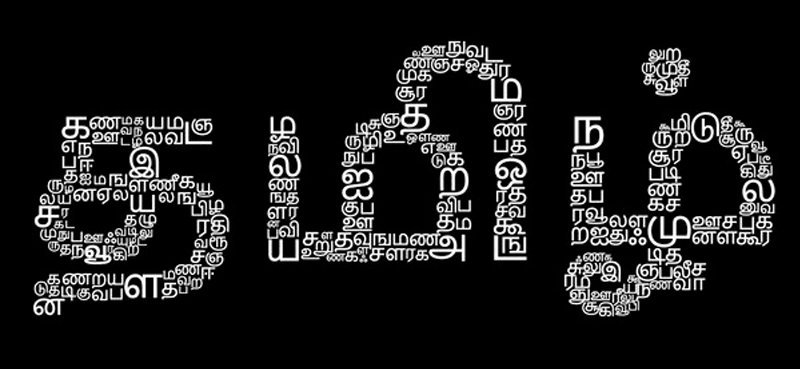
Introduction to research methodologies, including qualitative and quantitative research methods, literature review, data collection techniques, and research ethics.
Study of classical and modern Tamil literature, including poetry, prose, drama, and literary criticism, exploring major works, themes, and literary movements.
Examination of Tamil language structure, phonetics, morphology, syntax, semantics, and sociolinguistics, analyzing language variation, dialects, and language change.
Analysis of Tamil grammar rules, syntax, and semantics, along with the study of Tamil prosody, metrics, and poetic devices.
Overview of literary criticism theories and methodologies applied to Tamil literature, including historical, formalist, structuralist, and postcolonial approaches.
Comparative study of Tamil literature with other literatures, including Sanskrit, English, and other regional languages, exploring cross-cultural influences and literary connections.
Elective courses or seminars on specialized topics in Tamil literature, linguistics, or cultural studies, allowing students to explore specific areas of interest or research.
Research project or thesis under the guidance of faculty members, focusing on a specific research topic or area within Tamil literature, linguistics, or related fields.
Opportunities exist as professors, lecturers, or researchers in colleges, universities, or research institutions, teaching Tamil literature, linguistics, or related subjects, and conducting research in Tamil studies.
Graduates can pursue careers as research scholars, research assistants, or research analysts in academic institutions, think tanks, or cultural organizations, contributing to Tamil language and literature research projects.
Careers in publishing as editors, copywriters, or content developers for Tamil language publications, including books, journals, magazines, or digital media platforms.
Opportunities exist in journalism as Tamil language journalists, reporters, or editors, covering news, features, or cultural events for Tamil newspapers, magazines, or online news portals.
Graduates can work as translators or interpreters, translating literary works, documents, or speeches from Tamil to other languages and vice versa, or providing interpretation services for conferences, meetings, or events.
Careers in cultural organizations, museums, or heritage institutions, working as cultural officers, archivists, or curators, preserving and promoting Tamil language, literature, and heritage.
Opportunities in government departments, cultural boards, or language commissions, working as language officers, translators, or language policy advisors, promoting Tamil language and culture.
Careers in media and entertainment industries, including film, television, radio, or digital media, as scriptwriters, content creators, or cultural consultants for Tamil language productions.
Graduates can work as freelance writers, bloggers, or columnists, contributing articles, essays, or reviews on Tamil literature, culture, or current affairs for newspapers, magazines, or online platforms.
Opportunities in education and training sectors, working as Tamil language instructors, language trainers, or curriculum developers for schools, language institutes, or online learning platforms.
Overall, an M.Phil in Tamil offers diverse career opportunities in academia, research, publishing, journalism, translation, cultural organizations, government services, media, entertainment, freelance writing, education, and training, allowing graduates to contribute to the promotion and preservation of Tamil language, literature, and culture.